Interview - Kathryn Kluge and Kim Allen Kluge’s Interview about Slience
By Mulder, Los Angeles, 22 march 2017
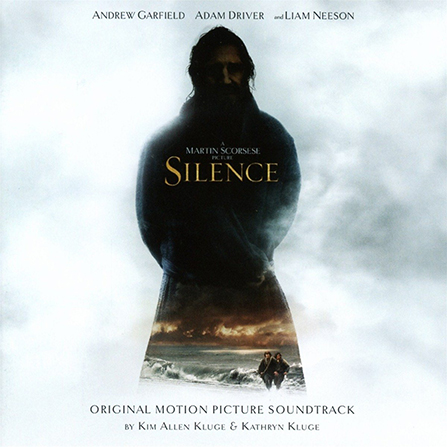
Q: What are your musical backgrounds and how did you become the Martin Scorsese’s Silence film composer?
Kim Allen Kluge : We both have classical backgrounds and have had the great privilege of composing for truly wonderful performing artists ranging from Branford Marsalis to Midori.
Kathryn Kluge: We are often told that our strengths as composers are melody and creating fresh musical sounds.
Kim Allen Kluge : We came to the attention of Martin Scorsese through an Academy award-winning producer who deeply appreciates our music. 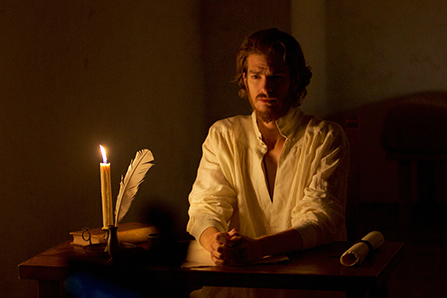
Q : Silence features twenty five original tracks - can you tell us more about their creation in a general way?
Kathryn Kluge: The film was in rough cut so we primarily composed from the novel.
Kim Allen Kluge: Mr. Scorsese is a musical genius— he inspired us with his audacious vision for the music.
Kathryn Kluge: This score represents a bold vision by a bold director. Mr. Scorsese was very explicit in his desire to “slow down the viewer” in an increasingly fast-paced cinematic world. He wanted to put the viewer in a different state of mind that would allow them to contemplate the existential exploration and profound mysteries of “Silence".
Kim Allen Kluge: Mr. Scorsese’s vision for the music was for it to emanate from nature, but for nature to somehow have melody and be musical!
Kathryn Kluge: So our challenge as composers was to find Nature’s voice and to make it sing with the full gamut of human emotions and feelings.
Kim Allen Kluge: Mr. Scorsese was also adamant that the movie and it’s music not “lead” the listener. So the score is very ethereal and Zen-like. We strove to conjure music that seemingly emanated like mist from the rocks, sea… the very landscape itself.
Kathryn Kluge: After reading Shusaku Endo’s "Silence", we felt that perhaps nature and the “music" coming from it were indeed the “voice of God” that was eluding the protagonist throughout the story— the voice he could not hear, but that was always with him. So we strove to create music that sounded like it not only came from the earth, but also from the spiritual realm.
Kim Allen Kluge: The initial twelve minutes of the soundtrack is “Meditation” which acts as an overture— this is the piece we first sent to Mr. Scorsese which inspired the rest of the score. It is the first music you hear in the film. “Meditation" starts with nature sounds and the “Cosmic Beam” (a special stringed percussion instrument), and evolves into voices with glimmers of melody, haunting and mysterious, foreshadowing the epic journey to come.
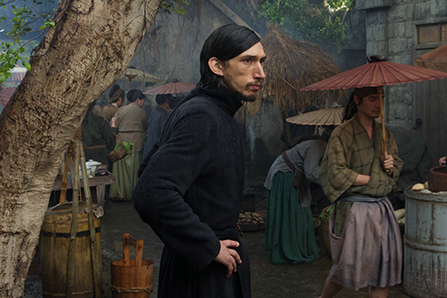
Q: How did you come about working with Martin Scorsese and how did you share the musical creations on this film?
Kathryn Kluge: Kim had the initial meeting at Mr. Scorsese's home and they had an immediate meeting of the minds regarding the soundworld for Silence.
Kim Allen Kluge: Our musical imaginations were fired by Mr. Scorsese’s daring ideas about the unique soundworld and music that he was envisioning for his extraordinary movie. Fortunately, we intuitively connected with Mr. Scorsese’s vision, so the musical ideas flowed very naturally and quickly.
Kathryn Kluge: When we sent the musical excerpts to Mr. Scorsese we would often reference specific page numbers and passages from the book. The novel is pregnant with rich aural imagery. 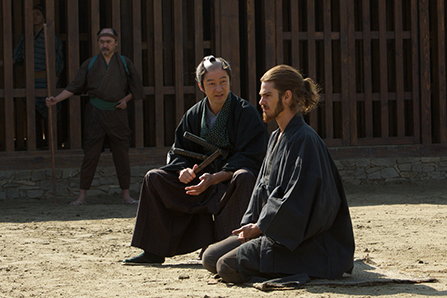
Q: How did you choose the different instruments to create this score and where did you record it?
Kathryn Kluge: We conceived the score symphonically. However, instead of using timpani for orchestral percussion we used the sounds of the ocean. Instead of using orchestral flutes, we used the sound of cicadas.
Kim Allen Kluge: We took our cues from Endo’s hypnotic repetition and references to nature sounds— his leitmotiv-like approach of using these nature sounds to create important subtexts for his story.
Kathryn Kluge: We also incorporated Japanese instruments as well as western instruments from the early 17th century— shamisen, biwa, taiko, shakuhachi flute, viola da gamba, tromba, singing bowls and western bells.
Kim Allen Kluge: We also made repeated use of wordless voices—distant voices that seem to emanate from the rocks or the depths of the ocean or from the very landscape itself. Sometimes these haunting voices seem to be voices from the past or perhaps from the martyrs…
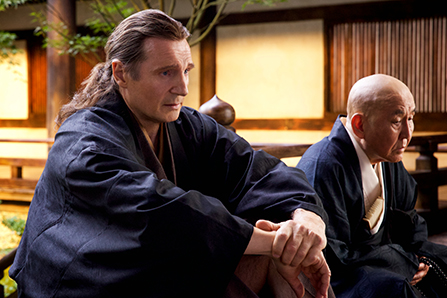
Q: Can you tell us an anecdote regarding your collaboration with Martin Scorsese during the production of this film?
Kathryn Kluge: Well, Mr. Scorsese is uncompromising when it comes to authenticity— so when we “auditioned” the different cicada sounds, we were restricted to only using Nagasaki cicadas!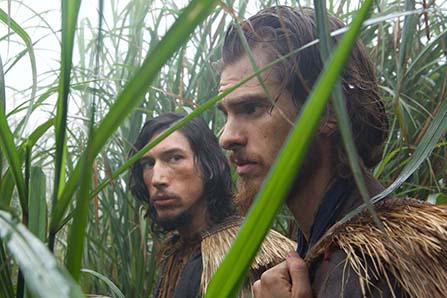
Q: Were there any creative challenges in composing the music for the film? If so, how did you overcome them, or how did you work through them?
Kathryn Kluge: Well, because the film was in a rough cut we worked primarily from the book— from the novel by Shusaku Endo, This was a good kind of challenge— a fortuitous set of composing circumstances, because it forced us to return again and again to the original source material, which is what so deeply inspired Mr. Scorsese’s screenplay. So we were all “reading from the same page” which created a very deep creative and artistic connection between our composing process and Mr. Scorsese’s creative process.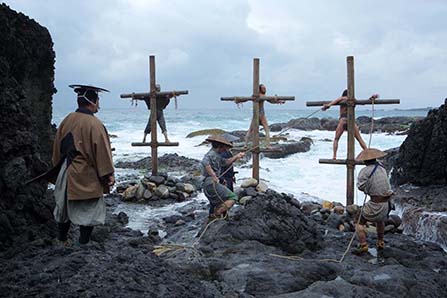
Q: You have worked with jazz legend, Branford Marsalis. Can you tell us more about that?
Kim Allen Kluge: I had worked with Branford on several occasions as a conductor. He’s an amazingly thoughtful musician who is steeped in classical music as well as jazz.
Kathryn Kluge: Kim and Branford really connected at a deep musical level and that connection gave birth to the composition, “Vocalise for Branford Marsalis”.
Kim Allen Kluge: Vocalise was composed to embody the extraordinary musical and technical qualities that characterize Branford’s distinctive sound. His powerfully expressive musical personality is so potently felt when you make music with him on the stage!
Kathryn Kluge: After the world premiere performance Branford gave us the highest compliment, stating "Your piece really sounds like me!"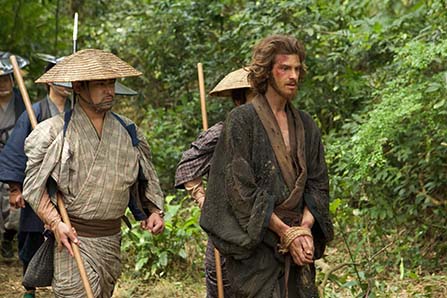
Q: What can you tell us about your new composition American Concerto?
Kathryn Kluge: Well it's very timely as the centerpiece for the concerto is the second movement which is inspired by a poem by a writer who is imprisoned for freedom of speech issues.
Kim Allen Kluge: That sets the tone for the entire concerto— so there are many contextual undertones throughout the concerto that resonate with issues of contemporary importance.
Kathryn Kluge: Kim and I feel very strongly that we compose music that “speaks” to what is going on in the world today.
Kim Allen Kluge: In terms of its sound, the “American Concerto” is extremely cinematic. The music is sensual, visceral and paints pictures— vivid sonicscapes.
Kathryn Kluge: But each listener will come up with their own very personal images and stories…
Kim Allen Kluge: We composed it as an homage to America’s historic love affair with cinema. It’s very nostalgic in it’s mood and filled with melody.
Kathryn Kluge: Yes, and because we are both pianists, this piano concerto feels especially close to us— we both composed it from the heart! 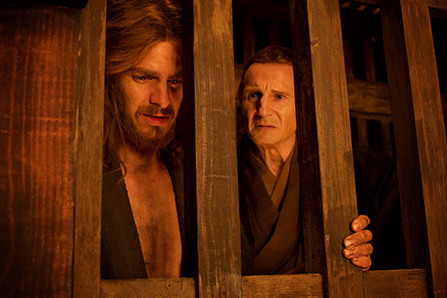
Q : Are there any composers, or types of music that inspire you?
Kathryn Kluge: We have extremely global taste ranging from classical to jazz to pop. And of course we love so much of film music — from the “golden era” to the music of so many of our contemporaries.
Kim Allen Kluge: Kathryn and I also share a deep love of European Cinema and its music — we feel a special bond to that aesthetic and its musical sensibilities.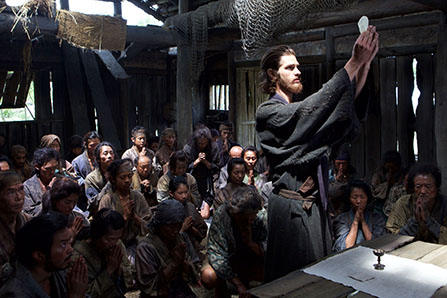
Q : In your opinion, what is the purpose of a good score in a film?
Kathryn Kluge: Of course everyone talks about how film scores should “serve” the film.
Kim Allen Kluge: But the best film scores often find a way to make the film transcend itself.
Q: What composers and/or music inspire you?
Kathryn Kluge: We have very eclectic taste— but if you come into our home you will hear a lot of classical music, jazz, American standards and alternative rock.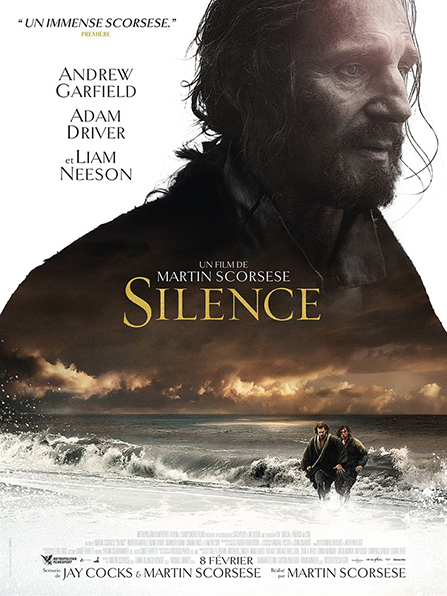
Q: Which directors do you dream to work with and why?
Kim Allen Kluge: It is the most marvelous thing to work with directors who challenge and stretch us musically and creatively. They give us such a great gift. Why? Because the unique worlds that they create in their movies inspire us to create whole new worlds of sound and emotion and feeling. That’s so exhilarating!
Kathryn Kluge: That is the biggest gift one could give a composer!
Q: Can you talk about your next projects?
Kathryn Kluge: Well right now we are finishing producing the “American Concerto” recording. And of course, because of the wonderful opportunity to work with Mr. Scorsese on Silence, we are being approached by directors for future exciting film projects!
Kim Allen Kluge: So we look forward to creating our next “new worlds of sound and emotion and feeling!”
Q: Any advice to young film composers who want to specifically compose for film?
Kim Allen Kluge: Strive to find your inner voice.
Kathryn Kluge: Then everything else will follow— including the directors with compatible visions who will then hopefully come to you!
Official website : http://kimallenkluge.com/about-a/composer/
We sincerely thank Kathryn Kluge and Kim Allen Kluge for answering our questions
An huge thanks to Ray Costa for helping us to have this great interview..

